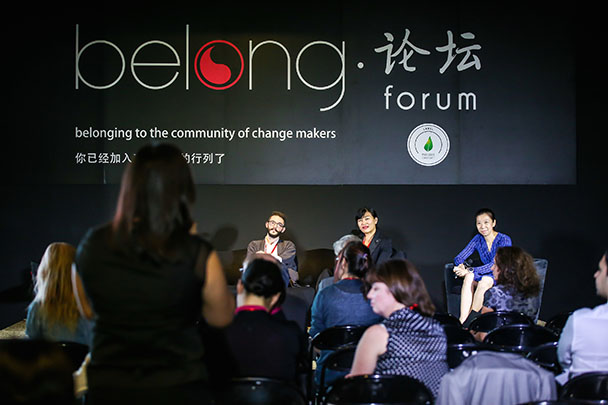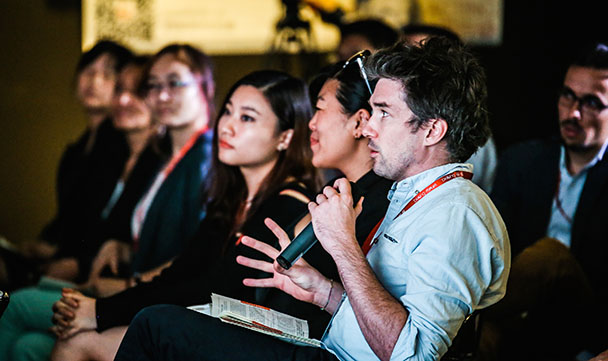CKGSB Professor of Marketing Zhu Rui hosted a fascinating panel discussion in Beijing this week on the opening day of the Belong Forum, which brings together 300 participants and 35 international speakers, serving as a bridge between Chinese & European companies.
Titled “Can Brands Change the Behaviors of Billions?”, Prof Zhu opened the session by using the example of how multinational company Unilever introduced their brand to India. With diarrhea very common in rural areas, it was a perfect market for the company, since their soap products can easily prevent the disease through effective handwashing. Prof Zhu explained how Unilever, instead of trying to capture the market in more traditional ways, partnered with local women who would borrow money from banks, buy Unilever products directly and then charge a 8% mark-up when selling to customers.
It was an immediate success, with millions of people in rural India now using soap to wash their hands. Prof Zhu laid out how Unilever created an entirely new ecosystem, and were able to make a profit by selling their products, but at the same time also created jobs for local people and cut down on disease. Unilever was certainly able to change the behavior of millions, if not billions, in this case.

Left to right: Benjamin Denjean, Co-Founder of La Dapeng; Jeni Saeyang, Founder and CEO of Eco & More; Zhu Rui, Professor of Marketing, CKGSB
Prof Zhu then stressed that it is important to focus on one’s core competency when embarking on a philanthropic project.
Using Chinese tech giant Tencent as an example, she explained how the company’s original philanthropic ventures were not really connected to Tencent in any particular way. Any other company could be doing the same thing, so their ventures weren’t linked to the firm and the effectiveness was lessened.
But the company DNA of Tencent – known for messaging services QQ and Wechat – is connection. Prof Zhu described how the company wanted to give back to communities, but they also wanted to return to their core competency of connection.
In rural areas, people lose connections to their family members who have migrated to the city, and to a certain extent they have also lost connections to the outside world. In order to restore these broken connections, Tencent gave smartphones to villagers so they could reconnect with their loved ones, and with other members of the community. One old woman, for example, who got online to talk to her son every evening became so famous that she was even interviewed by major global media. Meanwhile, Tencent also partnered with local brands, helping them to sell their products through the company’s channels, another initiative which helped rural communities.
In conclusion, Prof Zhu said that brands can do a lot of good, especially if they are smart about how they do and stay true to their heart.

The panelists engaged in a dynamic discussion with the audience, which comprised of social entrepreneurs, business executives, journalists and academics
After short presentations by Jeni Saeyang, the Founder and CEO of Chinese plant-based detergent company Eco & More and Benjamin Denjean, Co-Founder of vertical farming initiative La Dapeng, Prof Zhu led a discussion between the three speakers.
A lively and interactive Q&A session followed, with several audience members also involved. The final question, however, was directed to Prof Zhu.
“You are a professor at CKGSB,” a gentleman in the audience stated. “Is CSR a part of your curriculum there?” he asked.
“That’s a very good question,” Prof Zhu responded, without missing a beat. “In fact, we introduced it into the EMBA curriculum this year,” she replied, sparking impromptu applause from the audience.
To learn more about Belong & Partners, please click here.